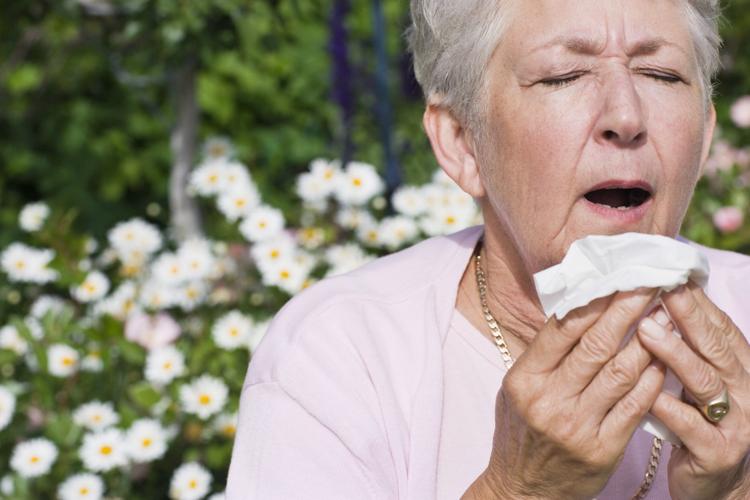It's the sneeziest time of the year.
Fall allergies are still hanging around for many, and now, cold season is ramping up.
Every day, south Louisiana doctors see patients sneezing from allergic reactions and coughing through the common cold, and they want their patients to learn the difference between the two.
"A common cold is an upper respiratory infection that is caused by a virus," says Dr. Shavaun Cotton, a family medicine specialist with Baton Rouge General Physicians. "Allergies is an immune response to a certain allergen like dust, pollen, mold, etc."
And, while they have similar symptoms, the two conditions are treated differently.
Infections caused by allergic reactions can be treated with antibiotics, but that type of medicine does nothing for the common cold.
Instead, overusing antibiotics can sometimes cause those drugs to become ineffective.
"The problem with taking so many antibiotics is (patients) are getting resistance, and when they really need antibiotics, their bodies may be resistant to the antibiotics," Cotton says. "We are trying to prevent unnecessary use of antibiotics and to prevent developing a resistance."
Occasionally, patients fighting a cold seem disappointed when doctors don't prescribe antibiotics, Cotton says.
"Sometimes they can feel like the doctor didn’t listen to them because the doctor didn’t give them antibiotics. 'Don’t they know I’m so sick?'" she says.
Recognizing the signs of the common cold and nasal allergies can be tricky. Cotton provides a few guidelines to tell the difference, as well as a few tips for treating these pesky afflictions.
Know the symptoms. Colds and allergies both cause coughing, sneezing, congestion and a runny nose. Cold sufferers may also have a slight fever, chills, diarrhea and body aches, Cotton says. With an allergic reaction, you are likely to have red, itchy eyes, an itchy throat and possibly hives.
Seasonal allergies or cold and flu season? Cold and flu season usually lasts from late fall to early spring, peaking in the winter, according to Gallup, the polling organization that tracks health trends. Colds can also occur outside of that time — anytime your body runs into a cold virus it hasn't encountered before. Allergies strike most people in the fall and spring when allergens, such as pollen, are most active, but common allergens like dust and mold are always present in south Louisiana, Cotton says.
Watch the calendar. A cold can last up to two weeks, Cotton says. "That’s the problem," she says. "Nobody wants to be miserable for two weeks." If symptoms last beyond that, the problem may be allergies, and a doctor may prescribe regular allergy medication. There is no "average" number of colds people get in a year, she says. Some people are exposed more regularly to the hundreds of different viruses that exist. Teachers and daycare workers come into contact with more viruses than anyone because children contract a few viruses a year, according to the Centers for Disease Control.
Treat the symptoms. Nothing can cure a cold except time. Prescribing antibiotics will not help the virus run its course any faster, Cotton says, but doctors can give various medications to help the congestion, cough, sneezing and body pains that come with a cold. "Treating symptoms can make people feel better," she says. "Giving an antibiotic won’t do anything." For allergies, a doctor can prescribe medications to lessen the allergic reaction or recommend over the counter pills — Claritin, Zyrtec or Allegra, for example — or nasal sprays. These might take a few days or weeks to fully kick in. "We encourage them that when you get on a medicine, stick to it and take it daily — even if you feel like you don’t need it," Cotton says.



